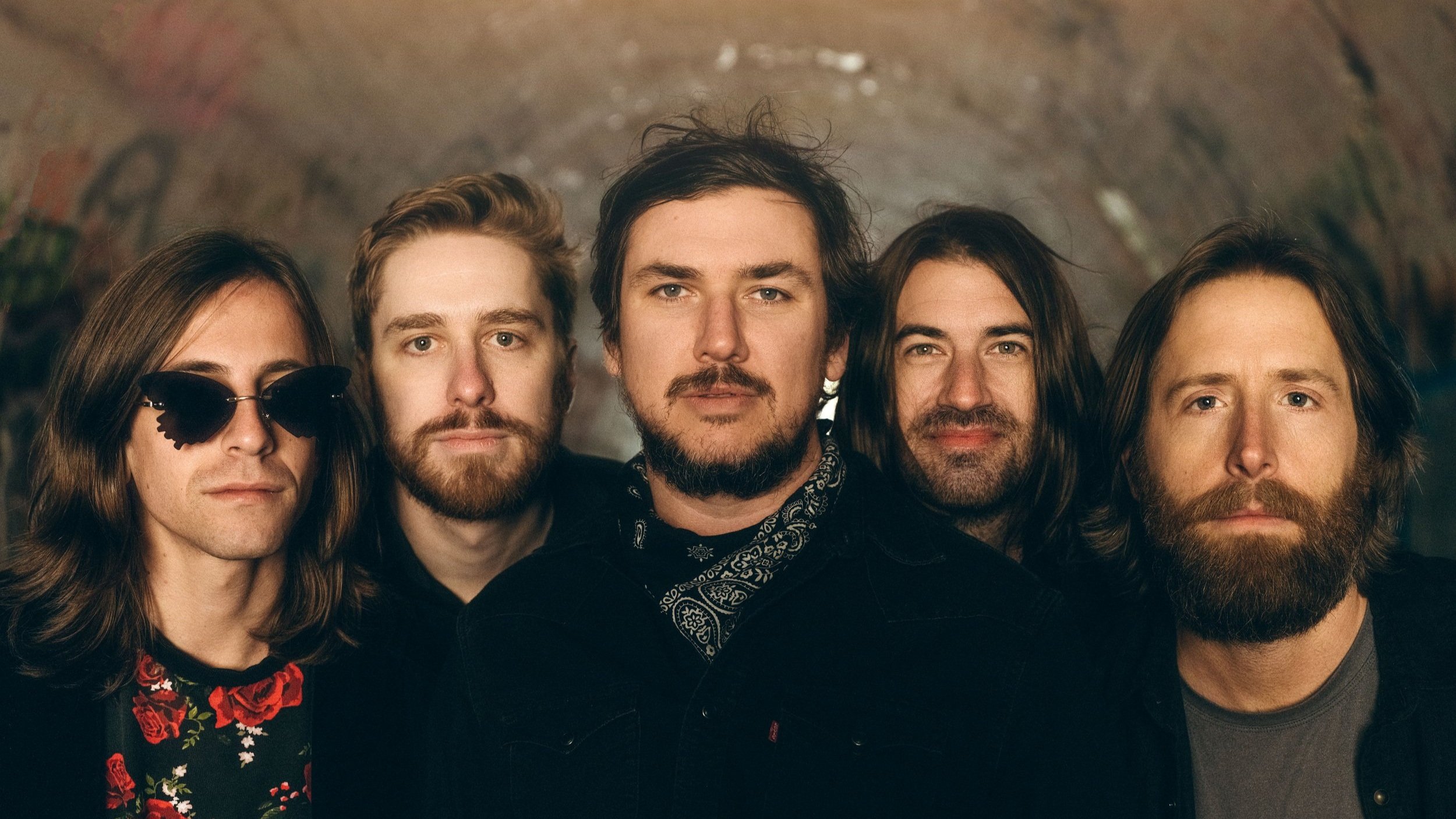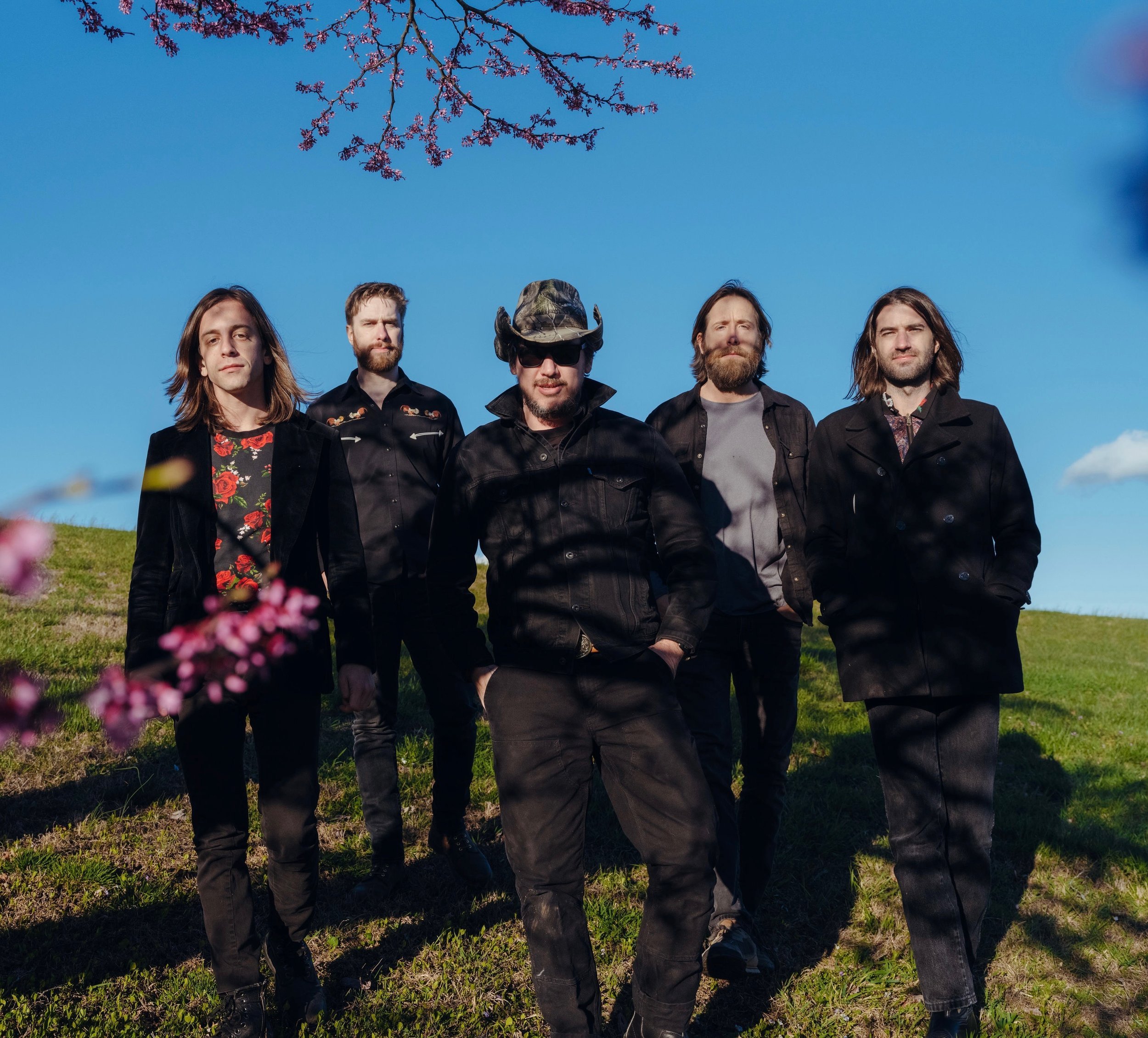After two years, Charleston, South Carolina’s, SUSTO returns with perhaps its most ambitious album yet, chronicling a period of intense personal change in the life of the band’s frontman, Justin Osborne.
Words by Patrick Barry
July 27, 2023
“Friends and lovers, ex-lovers or whatever,” SUSTO’s frontman, Justin Osborne, sang through my earbuds. I was sitting in the back seat of a Ford Escape, crammed between two massive suitcases full of clothes, squeeze tuna, bread, and Safeway peanut butter and jelly. The year was 2018. I had just graduated from high school, my uncles had just gotten married, and flights to Iceland were under $100. My uncles and I took a purple Airbus from Baltimore to Reykjavik, stole a few of the budget airline’s novelty barf bags, rented a car with a tent on the top, and climbed cautiously into the deep mountains.
I had a few friends, and no one I could confidently call an ex-lover, but the words spoke to me. There was a sense of something deeper in SUSTO’s music. Poignant poetry was always what propelled those folk and country rock tunes, which would have held their own even without the deft lyricism. Although the songs’ subject matter rarely strayed from the southern United States, I still associate SUSTO’s early work, specifically the song “Black River Gospel,” with the volcanic fields of northern Iceland, orange lighthouses dotting fjord headlands and multicolored wooden fishing boats docked in ancient bays.
They say we’re all pilgrims, we’re all strangers
In this land we’re just traveling through.
The album’s cover is a painting by Glagsow artist Gordy Livingstone entitled “Fat Lip.” Justin and his drummer, Marshall, discovered the painting while searching for album covers. “It kind of looks like me a little bit. There’s a guy with knuckle tattoos. There’s this element of the dove, and there’s a lot of bird imagery in the new record. It just kind of felt like the perfect fit.”
There’s a power in the ability to remove a song from the context of its creation and still create a connection with the listener. To write an emotionally resonant song is to work with the fundamental materials of life and shape them into something that can be grasped. Justin’swriting, informed by the confessional work of poets such as Robert Lowell, walks a wonderful fine line between the idiosyncratic and the universal.
Every aspect of SUSTO, from the lyrical themes to the band’s name, is emblematic of the central theme being expressed: change. “Susto” is a Latin American folk illness, a belief that a period of startling or drastic change can induce illness in patients. So, susto can be understood as a reaction to the impermanence of life.
Justin said the first SUSTO record was his first attempt as a songwriter to “describe what I felt like I was going through” after turning away from lifelong religious perspectives. He had recently learned about the term “susto” from a cultural anthropology class he had taken, and named the album after it.
“But then it ended up just becoming the band's name, because this is how I write songs; it's kind of like trying to express this state of ongoing susto,” Justin said. “I'm discovering that this is kind of part of life. And I know I'm not the only person who's ever felt those things or feels those things on a regular basis. Life is like a series of refinding yourself in new situations.”
It’s been nine years since that first album, two years since 2021’s album Time in the Sun, and there've been plenty of new situations for Justin to write about — including a painful divorce as a new father, the complete rebuilding of his band after COVID, and reconciling with the ramifications of mental illness and drug use in his family.
The last two years also brought about SUSTO’s new album, My Entire Life. It’s hard to compare SUSTO albums, as each is an honest artifact of a specific point in Justin’s life. As signifiers of growth, it would be about as useful to compare tree rings in terms of quality. Each successive ring bears the marks of winters survived and animals provided asylum. Likewise, each SUSTO album morphs in ways that are difficult to grasp. However, this album in particular comes off as the strongest yet, both sonically and thematically.
My Entire Life was recorded in locales ranging from Echo Mountain Studio in Asheville to a “recording pilgrimage” in the Mexican village of Tepoztlan, the mythical birthplace of the Aztec god Quetzalcoatl, where the band stayed in a house in the valley surrounded by pyramid-capped dome mountains. The album’s title track features a solo by guitarist Johnny Delaware, recorded outside, with the sounds of his instrument bouncing off the walls of the valley.
Pictured (from left): Ian Klin (keys), Kevin Early (bass), Justin Osborne (vocals/guitar), Marshall Hudson (drums), and Johnny Delaware (guitar). Photo by Paul King
Many songs on My Entire Life are classic SUSTO: revelatory, unapologetically grand, and bathed in a ragged youthfulness. Justin’s music is more than capable of evoking beautiful imagery, and often does, but never in a way that could be considered dishonest. There are no endless summers in the songs of SUSTO, but fleeting moments in the sun, made all the more precious by their transience. Joyous moments stand shoulder to shoulder with deep aching, the pains of change and the distant melancholy of old love. In “Hyperbolic Jesus,” Justin sings:
Crazy nights in Macon, Georgia
Makin’ love in a swimmin’ pool
When my mind starts racin’ toward you
I know I was a fool
“The record will get high,” Justin said. “But it’ll say, ‘Hey, remember, there’s valleys on the other side of that mountain, but that’s OK.’”
“Mt. Caroline,” the third song in the album, sticks out as a particular gem. A nimbly picked electric guitar trades off with sweeping, distorted guitar lines to create the feeling of summiting the song’s titular mountain. It’s a song begging to be played on car speakers, winding through mountain roads, stopping at every flea market and roadside oddity on the way. Caroline is Justin’s wife, a new and unexpected love that burst forth from the ashes of his painful divorce.
“I have had songwriting partners, but never a romantic partner like Caroline that I was able to do that with,” Justin said. “Songwriting is such a part of my identity, you know, so blending my personal life with my artistic life has been really helpful for me, especially with everything I've been going through.”
“Mt. Caroline’s”’ corresponding valley is a song called “Tina,” after the street name of methamphetamine.
Justin is one of four brothers, two of whom have had “really serious struggles with meth addiction.”
“They’ve both been living on the streets, more or less, for the last couple years. It’s very hard on my mom, who was recently widowed, and it’s hard on me, you know, watching people you love becoming ghosts of themselves,” Justin said.
A year ago, it all came to a head. Justin and Caroline were struggling to find a place to live after their lease ended, and Justin called his mom to discuss the situation.
“She ended up kind of … unloading a lot. And I don't blame her for that,” Justin said, sighing. “It was a lot of detailed stuff that was really sad about two of my brothers, on this particular weekend.”
Caroline, sensing something was wrong, pushed Justin to write a song to help deal with the situation. From it, “Tina” was born.
But with drugs like that who needs God
Hey with drugs like that who needs love
With drugs like that who needs life anyway
“I love all the songs on this record,” Justin said. “But those ones that feel like they're taking the burden off of me, in a certain way, feels uplifting, and feels like a burden off.”
These two songs are just a glimpse of the intense geography that comprises the landscape of My Entire Life. The song “Double Stripe” also bears mentioning. It’s a twinkling, fingerpicked lament, inspired by a group of fans from New England. A few weeks before they planned to attend a SUSTO show, a member of the group was killed in a car accident. After the tragedy, the woman’s boyfriend reached out to Justin through social media.
“I didn’t know how to tell the band about it. … I started telling Caroline the story about this guy, who was feeling very viscerally the loss of his best friend and partner,” Justin said. “And he's about my age. We just sat and wrote that song together. Lines would come out and we just cried about how sad it was.”
Not every song on Life is so melancholy, though. The album opener, “Rock On,” is both a straightforward, catchy rock song and a window into the hectic life on the road. “Mermaid Vampire” is a somewhat jammy, foot-stomping tune. “Hyperbolic Jesus” showcases a recurring literary device of Justin’s: Christian and spiritual imagery, which he uses to great effect in his songs, “almost like a mythology.”
“One of the things I found when I left that cultural identity [of Southern evangelical Christianity] was that it's in the language: the way people converse with each other, the way they communicate,” Justin said. “I found it hard to speak to people outside of the context of this worldview. I know how to speak it, you know, I grew up speaking it, and I was brought up this way, but parts of me miss being able to talk this language that feels like a native language.”
I don’t believe in Jesus
But I bet she was a pretty good guy
Used to say her name in high places
Now I just keep getting high
The reshaping and analysis of Justin’s faith is a constant theme throughout his work. By removing spiritual images from their dogmatic surroundings, he shapes them into tools to drive home his message.
SUSTO is music that, in Justin’s words, “is a tribute to the human experience.” In that way, it does seem monumental. Part diary, part poetry chapbook, the songs in My Entire Life are perceptions of life through the eyes of one man that may arrive to you at any moment. You may be driving through the gnome-infested valleys of eastern Iceland, or walking to work, or sitting at home when you first discover SUSTO. Anytime is the right time, because all moments are periods of change, and we could all use a little reminder that despite the valleys, the mountains may rise even higher.
Patrick Barry is a writer, musician, and journalist who lives in Athens, Georgia. His passion for human moments and grand tales has taken him far afield, from the cockpit of a Cessna 172 to a monthlong job working at a 500-year-old farm in the Scottish Highlands. As a journalist, he has had work published in The [Valdosta State University] Spectator, the Athens Banner-Herald, and Flagpole, Athens’ long-running culture and arts weekly. As a musician, he has played local shows both live and on college radio, as well as at 2021’s Finster Fest at Howard Finster's Paradise Gardens in Summerville, Georgia.




